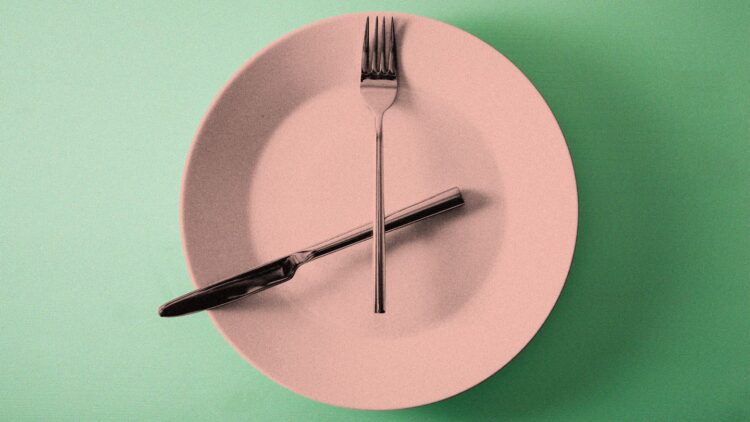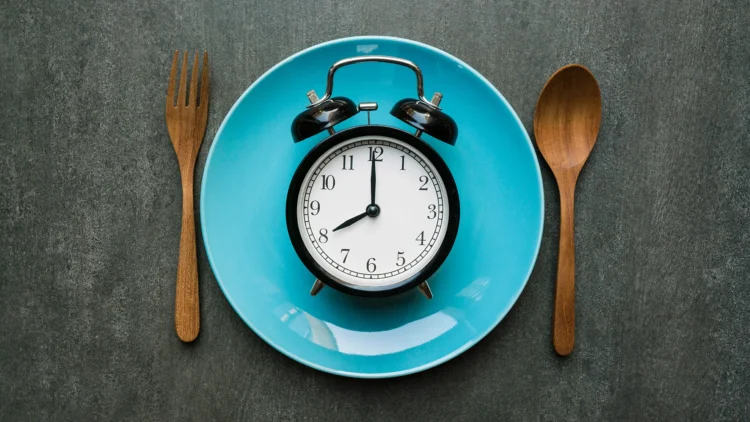Intermittent fasting has gained significant popularity in recent years, not only as a tool for weight management but also for its potential health benefits, including improved metabolism and longevity. However, along with the many advantages, intermittent fasting comes with its set of challenges. One common issue that many people encounter when adopting intermittent fasting is the dreaded headache. These headaches can be intense and persistent, but the good news is that they are not insurmountable. In this comprehensive guide, we’ll delve into the causes of intermittent headaches and explore effective strategies to alleviate them, ensuring a smoother journey.
Explanation of Intermittent Fasting Headaches and Their Causes

Intermittent headaches are a prevalent complaint among practitioners. These headaches often present as throbbing, pulsating pains in the head, and can range from mild discomfort to severe migraines. To effectively tackle these headaches, it’s crucial to understand their underlying causes.
The primary cause of intermittent fasting headaches is a sudden drop in blood sugar levels. When you abstain from food for an extended period, your body depletes its glucose stores, leading to hypoglycemia, a condition characterized by low blood sugar levels. This drop in blood sugar can trigger headaches, as your brain relies on glucose for energy. Additionally, dehydration, caffeine withdrawal, and stress can exacerbate these headaches.
The Importance of Staying Hydrated During Fasting Periods
Staying adequately hydrated during periods is paramount to a successful experience. Dehydration can exacerbate the challenges of fasting, leading to discomfort and headaches. When you abstain from food and drink, your body still loses water through various processes like respiration and perspiration. This loss can disrupt your electrolyte balance and leave you feeling fatigued and irritable.
To counteract this, make a conscious effort to drink enough water throughout your window. Herbal teas or water infused with citrus slices or cucumber can add variety to your hydration routine. Proper hydration not only supports overall health but also helps prevent headaches and ensures you stay energized and focused during your journey. Remember, water is your ally in fasting; don’t underestimate its significance.
Tips for Gradually Easing into Intermittent Fasting

If you’re new to intermittent fasting, diving straight into a strict fasting regimen can be a shock to your system and increase the likelihood of developing headaches. Instead, consider easing into it gradually. Start with shorter windows and gradually extend them as your body adapts. This gentle approach allows your body to adjust to the routine, minimizing the risk of headaches.
Balancing Nutrient Intake to Prevent Headaches
Balanced nutrition is key to preventing migraines during intermittent fasting. When you do eat, prioritize whole, nutrient-dense foods that provide sustained energy. Incorporate complex carbohydrates, lean proteins, and healthy fats into your meals to help stabilize blood sugar levels and reduce the risk of headaches. Avoid sugary or processed foods, as they can lead to rapid fluctuations in blood sugar.
Managing Caffeine Intake for Headache Relief
Managing caffeine intake plays a pivotal role in mitigating fasting-related headaches. If you’re accustomed to a daily caffeine fix, abruptly discontinuing it can trigger a throbbing migraine. Instead of going cold turkey, consider a gradual reduction in your caffeine consumption before starting intermittent fasting.
Swap out your regular coffee for decaffeinated or opt for milder caffeinated alternatives like green tea or herbal infusions. These options provide a gentler energy boost without the abrupt highs and lows associated with caffeine withdrawal.
Remember, moderation is key. Limit your caffeine intake during periods and be mindful of any hidden sources of caffeine in supplements or medications. By strategically managing your caffeine consumption, you can minimize migraine , making your journey more manageable and comfortable while still enjoying the benefits of intermittent fasting.
The Role of Stress Management in Reducing Headaches

Stress is a powerful headache trigger, and periods can sometimes exacerbate stress levels. Incorporating stress management techniques, such as meditation, deep breathing exercises, or yoga into your daily routine can be highly effective in preventing and alleviating headaches. Reducing stress not only helps with headache relief but also enhances your overall experience. For additional guidance and resources on managing intermittent migraines, you can explore valuable insights and tips on this website. It offers valuable information to complement your journey and ensure a smoother, more headache-free experience.
Incorporating Electrolyte-Rich Foods into Your Routine
Electrolyte imbalances can contribute to headaches during fasting. To maintain proper electrolyte levels, consider adding foods rich in potassium, magnesium, and sodium to your diet. Avocado, leafy greens, nuts, and seeds are excellent sources of these essential minerals. Additionally, you can explore electrolyte supplements or electrolyte-enhanced water to support your hydration and headache prevention efforts.
Strategies for Getting Enough Sleep During Intermittent Fasting
Adequate sleep is crucial for overall well-being, and it can play a significant role in preventing headaches during intermittent fasting. Sleep deprivation can trigger migraine and exacerbate the challenges of fasting. Ensure you prioritize good sleep hygiene by establishing a consistent sleep schedule, creating a comfortable sleeping environment, and practicing relaxation techniques before bedtime.
Exploring Natural Remedies

While some may opt for over-the-counter pain relievers to combat headaches, natural remedies can be just as effective and gentler on the body. Consider herbal remedies such as peppermint or ginger tea, which have soothing properties and can alleviate headache symptoms. Additionally, aromatherapy with essential oils like lavender or eucalyptus can provide relaxation and headache relief.
Conclusion and Encouragement for Successful Headache-Free Fasting
Intermittent fasting can be a powerful tool for achieving your health and wellness goals, but it’s essential to address and manage the challenges it presents, particularly migraine . By understanding the causes of these headaches and implementing the strategies discussed in this guide, you can significantly reduce their occurrence and intensity.
Remember that every individual is unique, and it may take some trial and error to find the right combination of strategies that work best for you. Patience and consistency are key to a successful intermittent journey, and with dedication, you can enjoy the benefits of fasting without the ache of headaches. Embrace the opportunity to enhance your health and well-being through intermittent fasting, and may your experiences be headache-free and rewarding.
 Hi Boox Popular Magazine 2024
Hi Boox Popular Magazine 2024



